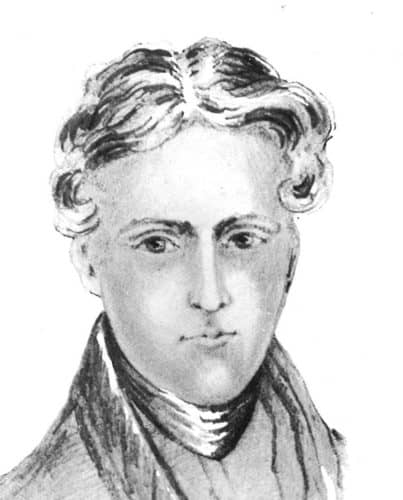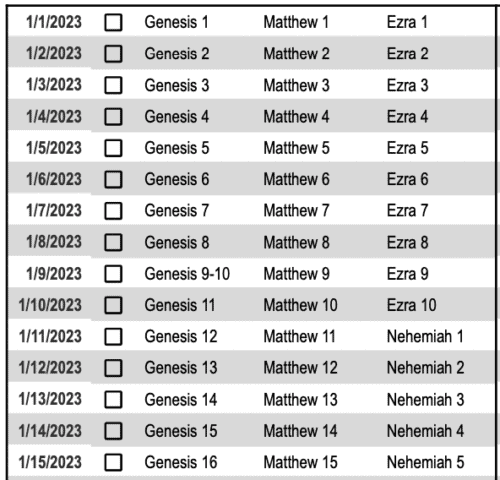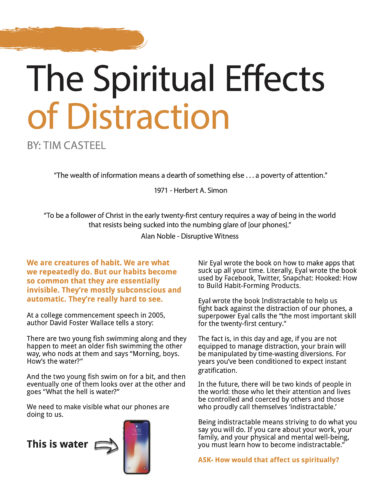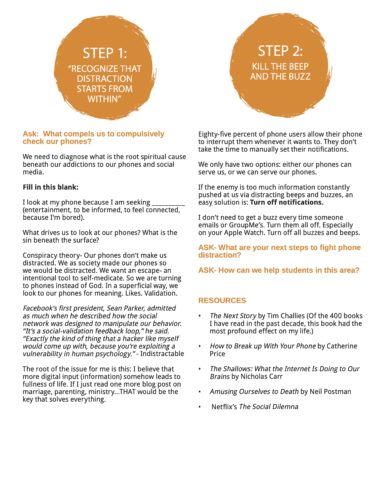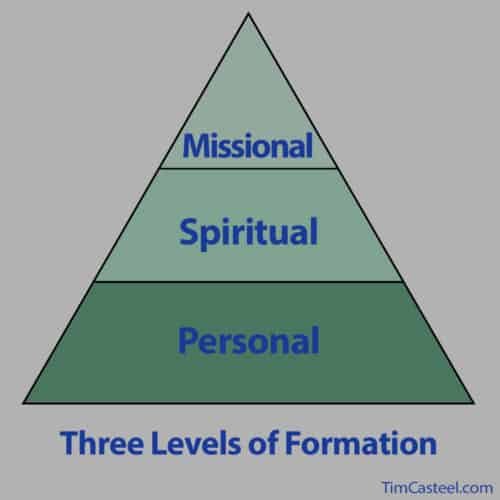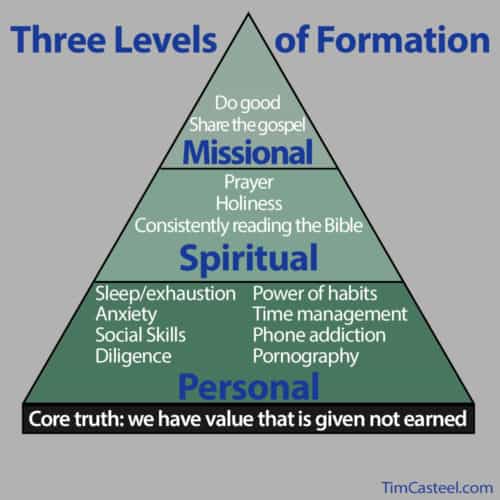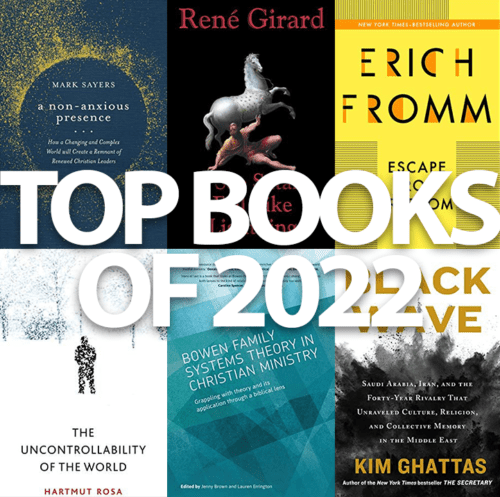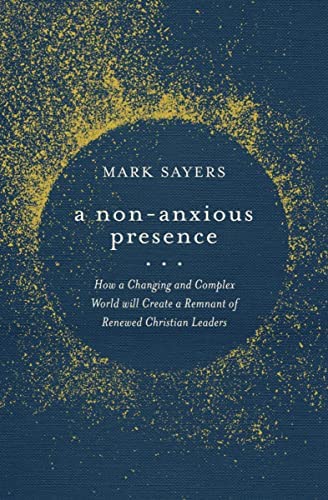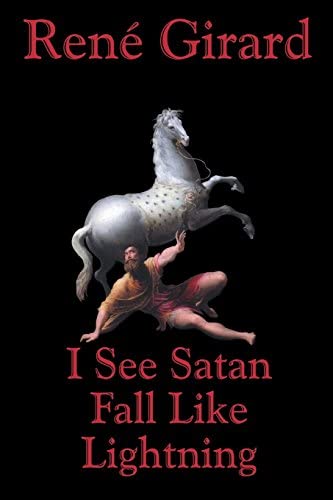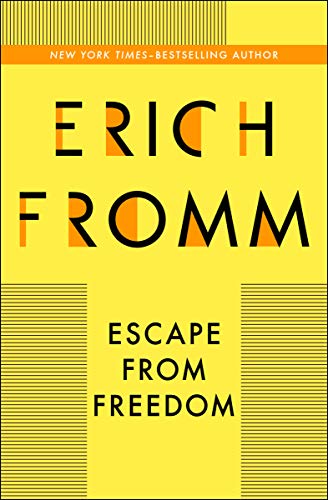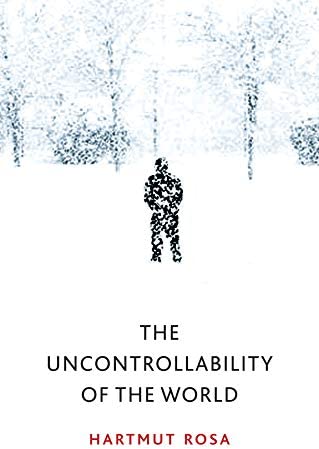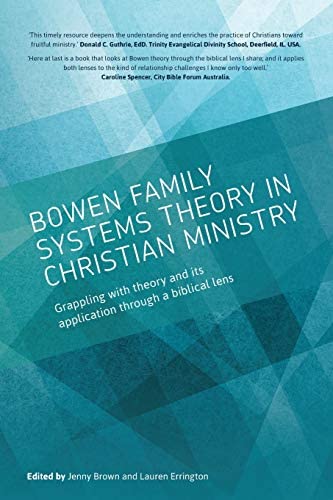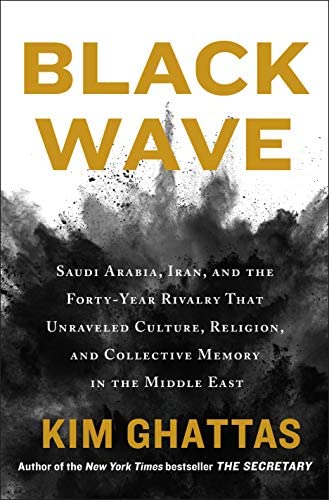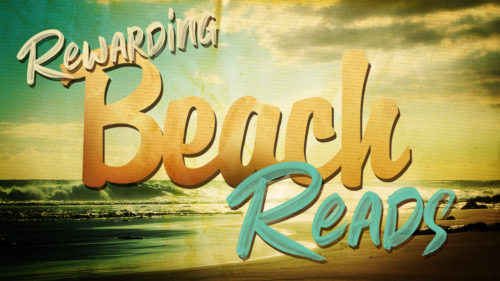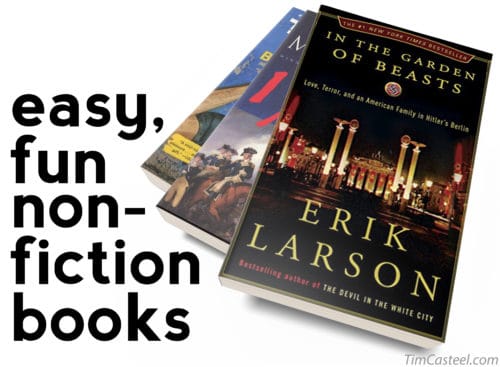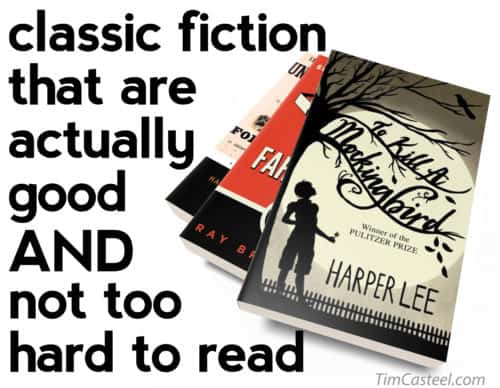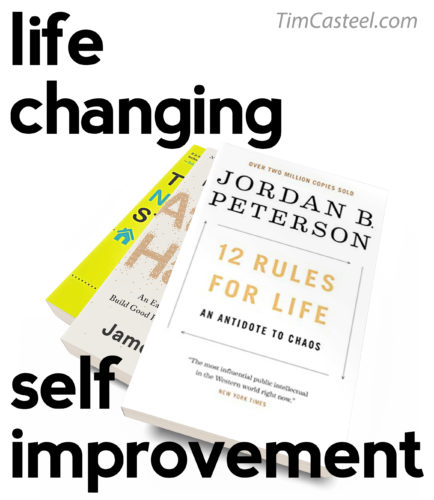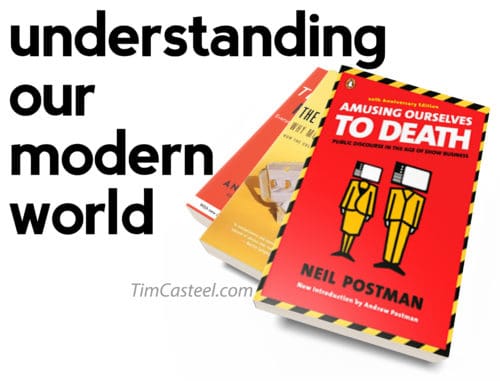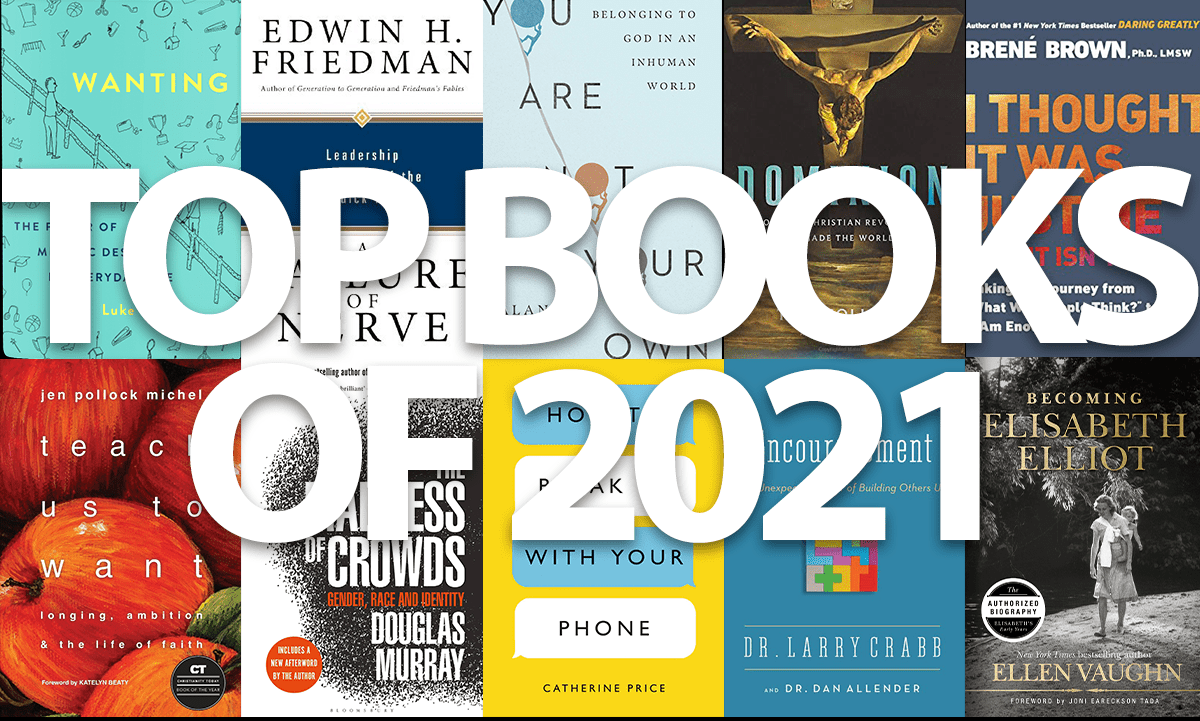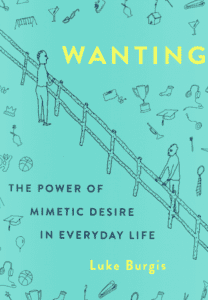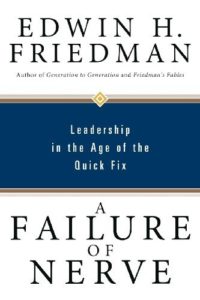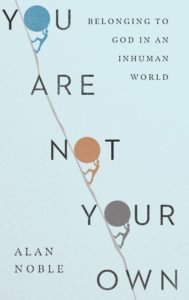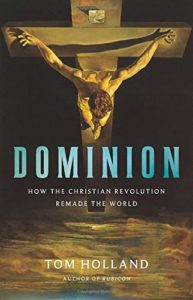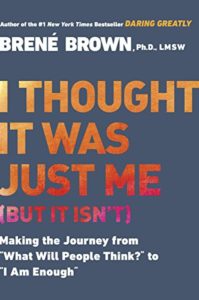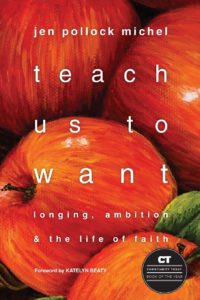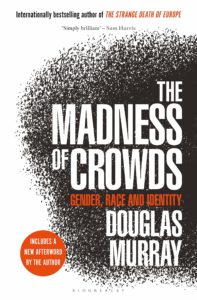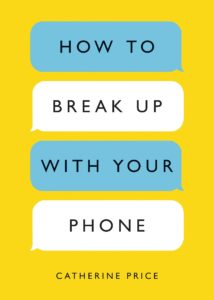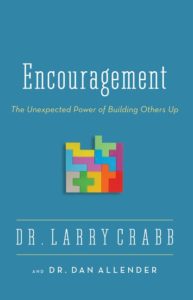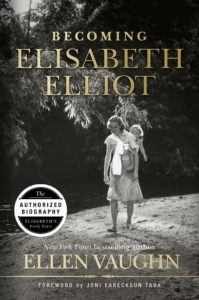I read more than I did in 2022 but a lot less than I used to back in the days of 75 or 100 books/yr. The biggest shift this year has been toward reading the Bible more. I really like my current method of reading the Bible: reading M’Cheyne’s Bible-in-a-year and then studying one book of the Bible in depth.
The Bible is easily the best book I read all year. I’m starting to REALLY enjoy reading it – I think, the fruit of repeated reading. It’s such a complex and endlessly deep book.
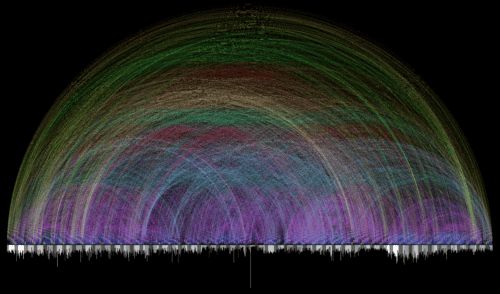
This design by Chris Harrison beautifully illustrates the interconnectedness of Scripture. The connecting arcs are a visual hyperlink – showing when a verse in the Bible references back to another verse (a total of 63,779 cross-references). The more I read the Bible, the more fun it is, as I begin to see the threads. Several of the books below helped me to better see those connections.
“At any price, give me the book of God! Let me be a man of one book.” – John Wesley
The Top Books I read in 2023:
- The Temple and the Church’s Mission: A Biblical Theology of the Dwelling Place of God – G.K. Beale
- Homo Deus: A History of Tomorrow – Yuval Noah Harari
- The Six Conversations: Pathways to Connecting in an Age of Isolation and Incivility – Heather Holleman
- Feminism against Progress – Mary Harrington
- How God Became King: The Forgotten Story of the Gospels – N.T. Wright
- Everything Sad Is Untrue – Daniel Nayeri
- Psychopolitics: Neoliberalism and New Technologies of Power – Byung-Chul Han
- From Land to Lands, from Eden to the Renewed Earth: A Christ-Centred Biblical Theology of the Promised Land – Munther Isaac
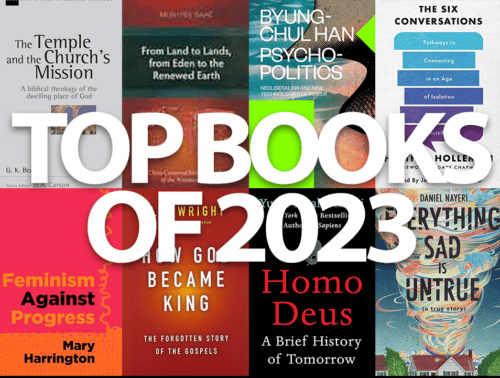
The Temple and the Church’s Mission: A Biblical Theology of the Dwelling Place of God – G.K. Beale
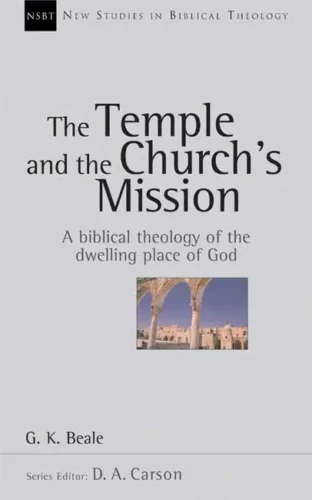
Tremendously helpful book for understanding the entire Bible. Beginning at the garden of eden, the archetypal temple, Beale traces temple language throughout the Bible, methodically working his way through every book of the Bible that references the temple.
God created the universe to be his great temple. And he gave Adam a charge to spread expand the glory of God to fill the entire earth. This goal would be achieved not directly by God but by a “human vice-regent whom he installed in the garden sanctuary to extend the temple of God’s presence worldwide.”
That was Adam’s purpose, and it is ours. Jesus founded the heavenly temple on earth and left us the mission of extending the temple of God to cover the earth like the waters cover the sea.
We, as the church, ARE the end-time temple.
Our job on earth is to expand the kingdom temple, the presence of God, through obedience to our king.
If you’re interested in this topic but not enough to read a 459 page book, you could read Beale’s 177 page version of this book God Dwells Among Us though it’s significantly less good.
Here’s the thing about good academic works – they’re often very readable and more clearly argued than their stripped/dumbed down counterparts. The 177pg version doesn’t make the content more accessible, but quite the opposite. It lacks coherence and is difficult to understand. While the 459 page book is long, it’s very clear and coherent. And the length is a feature, not a bug. We learn through repeated exposure over weeks, not days. If you chew on the Temple in scripture for a solid month, it will stick with you. The average reader can read 450 pages in 12.5 hours. So if you read 30 minutes/day over the course of a month, you could easily read The Temple by Beale.
It’s worth the effort. You’ll be surprised at your intellectual ability to dig deep and really learn about Scripture. You can push through some of the clunkiness of an academic work: “In this section, I will continue to attempt to draw together some of my more important hermeneutical observations and conclusions made so far throughout the study, especially as these bear upon the theology of the temple.” Yes, that sentence is very dry. But 99% of the book is packed with such incredible insight that you won’t be able to stop reading it.
Click to see my full review on Goodreads
Homo Deus: A History of Tomorrow – Yuval Noah Harari
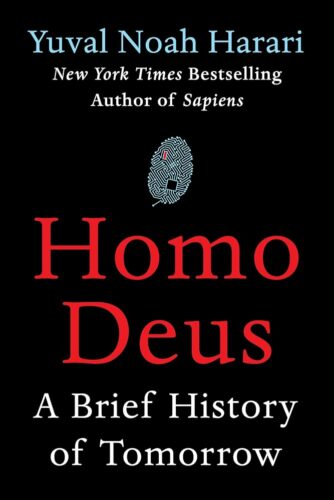
In Homo Deus, Harari argues that humankind is about to become godlike in their powers.
Humans will merge with computers who “will know your desires, likes, and dislikes even better than you.”
Yuval Harari is a gay, atheist Jewish professor at Hebrew University whom John Mark Comer calls the leading atheist of our time.
He is an honest atheist, a compelling writer and a brilliant thinker.
“Omnipotence is in front of us, almost within our reach, but below us yawns the abyss of complete nothingness…a universe devoid of meaning. Modern culture is…plagued by more existential angst than any previous culture. This is the primary commandment [of the modern age]: create meaning for a meaningless world.”
His forecast for the future is sobering: In the twenty-first century we, with the power of AI and biotechnology, will create overwhelmingly powerful ideologies that will be able to subconsciously manipulate our brains, leaving us unable to distinguish fiction from reality.
Not a short book but it’s so engrossing and well written that the 464 pages fly by.
Click to see my full review on Goodreads
The Six Conversations: Pathways to Connecting in an Age of Isolation and Incivility – Heather Holleman
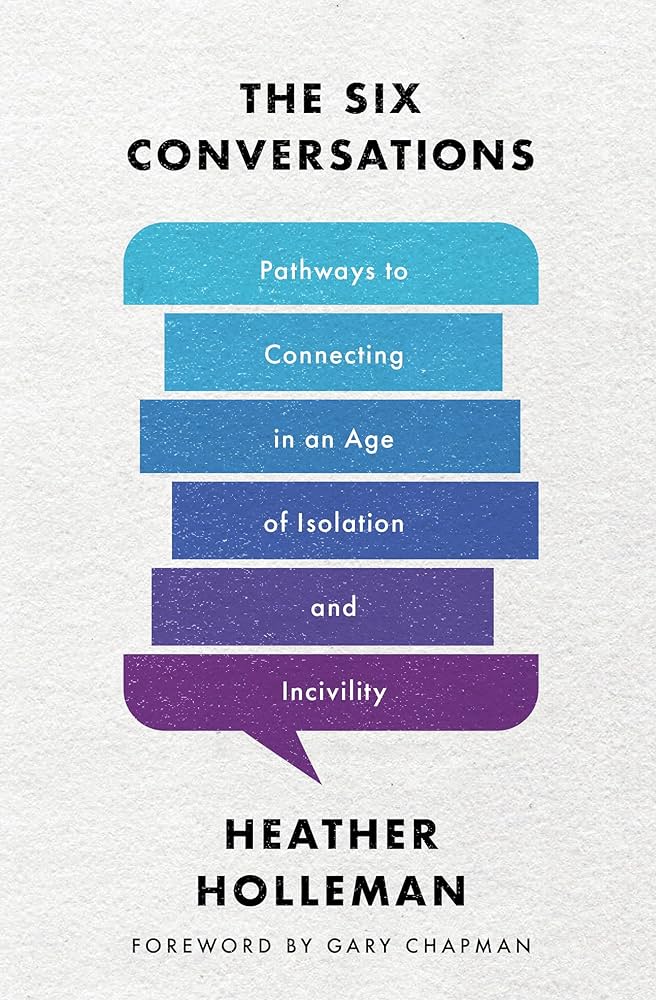
The book’s tagline sums it up well: “Pathways to Connecting in an Age of Isolation”. Aside from learning to read and conform our lives to God’s Word, I believe this is the key skill to develop: learning how to build warm, deep relationships.
“You’ll gain confidence in starting conversations. You’ll know how to connect. And your life will change forever from lonely, disconnected, insecure, and even unhealthy to living in richer communities of deep connection, security, and well-being.”
Click to see my full review on Goodreads
Feminism against Progress – Mary Harrington

Feminism Against Progress is the kind of brave book that can change history – with piercing insight into both the cause of and the cure for a rotting society.
Mary Harrington came of age in the radical left, gender-queer world of early 2000’s London, questioning whether she was really female and changing her name to Sebastian for a while.
“I was raised to believe in Progress Theology – the more-or-less religious framework that governs much of modern culture in the West. This theology says there’s a ‘right side of history’, and things can go on getting better forever. But one day, about 15 years ago, I realised I no longer believed.”
What caused Harrington to de-convert? Partly, becoming a mom:
“I’d bought uncritically into the idea that individual freedom is the highest good, that bonds or obligations are only acceptable inasmuch as they’re optional, and that men and women can and should pursue this equally. Then I went through the wonderful and disorienting experience of finding my sense of self partly merged with a dependent infant. The kind of absolute freedom I’d accepted as an unalloyed good, pre-baby, was suddenly a great deal less appealing to me than it had been, because I actively enjoyed belonging to my daughter. Pre-baby, I could do more or less what I liked, as a mother I couldn’t very well refuse to get up and feed my crying newborn at 3:30 a.m. just because I didn’t feel like it. Her interests mattered more to me than anything else in the world, including my once-treasured autonomy.”
To my knowledge, Mary Harrington is not a Christian. But her piercing writing is incredibly amicable to Christianity. Her overall goal seems to be answer the question: how do we, as very different men and women, “live together in the rubble of absolute freedom?”
The answer: get married, stay married, and have babies.
Part of Harrington’s solution is to value the contribution of women in care-roles – mothering, caring for the elderly, building relationships in neighborhoods and community. Women are the relational glue that holds together societies and encourage interdependence. We all need “a freedom haircut” and women are key leaders in this movement toward interdependence (partly by embracing their sexed difference).
Click to see my full review on Goodreads
How God Became King: The Forgotten Story of the Gospels – N.T. Wright
I’ll read anything by NT Wright. Before reading this book I could not have answered: if you strip away the birth (incarnation) and the death/resurrection of Jesus, what was the life of Jesus about?
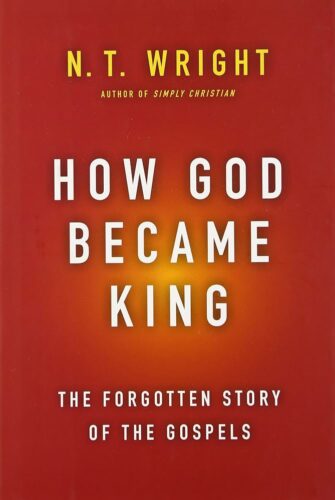
His most challenging point is that Jesus did not come to teach people how to go to heaven.
“This is not—demonstrably not—what the four gospels are about.”
When Jesus talks about “doing this or that ‘so that you may enter the kingdom of heaven,’” he is not saying “so that you may go to heaven when you die.” “The ‘kingdom of heaven’ is not about people going to heaven. It is about the rule of heaven coming to earth.”
For as long as I have been reading the Bible this has bothered me – why doesn’t Jesus clearly tell his followers how to go to heaven?
Instead, Jesus spends his time on earth challenging the Jews to become citizens “of the kingdom coming on earth as in heaven.”
Click to see my full review on Goodreads
Everything Sad Is Untrue – Daniel Nayeri
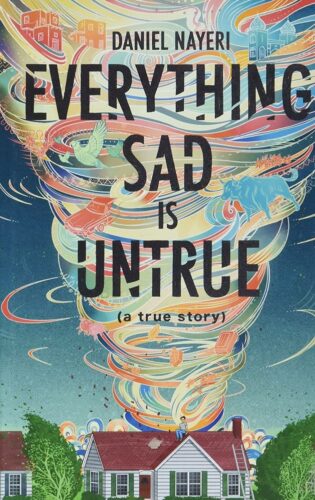
A mostly-true story of an Iranian woman who converts to Christianity and is forced to flee to Oklahoma with her two children.
The stream of consciousness writing makes the book a bit hard to get into. But it’s worth the effort.
An easy read- the target audience is young adult – but packed with profound, beautifully-written wisdom like: “We don’t owe anyone our sadness, but the sharing of it is what friends do. It makes the sadness less.”
This year, no other paragraph pierced my soul like this one:
“Imagine you’re evil.
Not misunderstood.
Not sad.
But evil.
Imagine you’ve got a heart that spends all day wanting more.”
Ouch.
Click to see my full review on Goodreads
Psychopolitics: Neoliberalism and New Technologies of Power – Byung-Chul Han
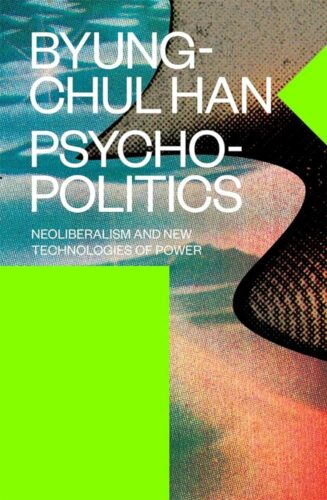
A poorly named book- it’s not at all about politics.
A better title would be any of these:
- Invisible slavery in a world of endless freedom
- I Want Everything Now – how smartphones make desire immediate and enslaving.
- Protect me from what I want- life in the digital land of endless desire.
Byung-Chul Han is a South Korean-born German philosopher who is one of the most widely read philosophers in Europe today.
Like all of Han’s books, this is a brief, dense philosophy book.
There are few thinkers as helpful as Han in understanding our modern world. He’s the modern equivalent of Neil Postman or Marshall McLuhan- pulling back the curtain of technology to help us see what is underneath.
Han does the hard work of reading inscrutable philosophers and academics, synthesizing them, improving their ideas, and then writing briefly and simply.
Click to see my full review on Goodreads
From Land to Lands, from Eden to the Renewed Earth: A Christ-Centred Biblical Theology of the Promised Land – Munther Isaac
“Land is a central, if not the central, theme of biblical faith.”
If you’re a careful student of the Bible, there should be a glaring thematic hole in the NT. After being one of THE major characters in the OT, where does the Land go in the NT??
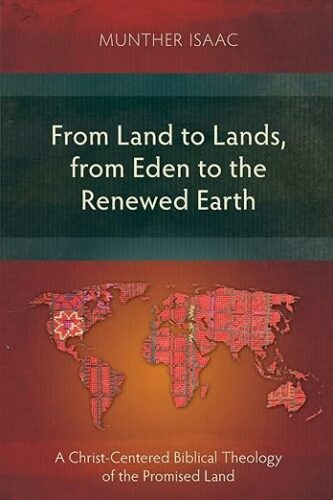
Over the last few years of reading (books & the Bible) I’ve become convinced that the Great Commission is almost an exact replica of Moses’s commission to Joshua. Jesus, like Moses, comes to a mountain on the edge of the Promised Land but does not go into the land, instead sending his people to take it.
Which raises many questions: What is our promised land- do we have one? What role (if any) does the Land play in the New Covenant (it’s notably absent from Jeremiah’s New Covenant)? And in what ways is our obedience connected to taking the promised land?
From Land to Lands is written by a Christian Palestinian. So there’s obviously a lot at stake (and a little bias!) for the author. This books pairs nicely with Beale’s book on the Temple.
Some key ideas:
- The wages of sin in the OT is exile from the land.
- “The Land is given to Israel for a distinct purpose: to provide a space in which it can embody faithfulness to the Torah. In the land, Israel establishes an alternative society, one that is ruled by the laws of God”
- “There is a clear connection between the king’s righteous reign and the flourishing of the land. The Israelite monarchy project failed; and the king as the main figure in this system holds the main responsibility for this failure. Instead of being a source of blessing and fertility for the land, he was the cause of the tragedy for the people and the land.”
- “Canaan, the land of promise, is the first stage in the realization of the universal promise [to bless all nations].”
- What is the promised land in the New Testament? “The land that Jesus inherits is the whole earth.” Our Promised Land is the nations.
Though not a short book (at 410 pages) it is very accessible (not overly academic).
